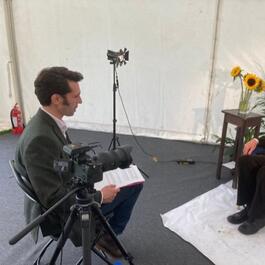
Nancy Tuana & The Inequities of the Anthropocene
According to the received narrative, we have entered a new geological era in the history of our planet, the Anthropocene. Human beings, so the theory goes, have become geological agents, having an impact on the planet so profound that it can only be compared to past ice ages and the early stages of the planet’s formation. But this narrative implies that all humans have had a hand in changing the planet, and that that all humans are affected in the same way by climate change. Philosophers, historians and geologists have recently been pointing out that this isn’t the case. Climate change affects different groups of people differently, and the same goes for some of the proposed solutions to climate change. Desmond Tutu has spoken of a climate apartheid. “Climate adaptation” he says “is becoming a euphemism for social injustice on a global scale”. So what does the South-African cleric and human rights activist mean when he compares some climate change solutions to the apartheid regime? What’s the relationship between climate change and racism? And how can understanding the origins of both help us put forward solutions that don’t reproduce the inequities of the past? Nancy Tuana is Professor of Philosophy, Women"s, Gender, and Sexuality Studies at Penn State College of the Liberal Arts. She is the author of several books and papers on feminism, climate change and the nature of racism, including "Climate Apartheid: The Forgeting of Race in the Anthropocene". This podcast is created in partnership with The Philosopher, the UK’s longest running public philosophy journal. Register for free for the spring series of talks and events at: https://www.thephilosopher1923.org/events Music by Pataphysical Artwork by Nick Halliday
From "The Philosopher & The News"




Comments
Add comment Feedback